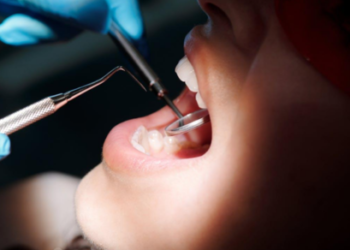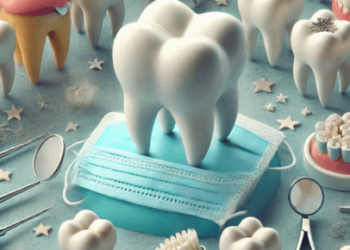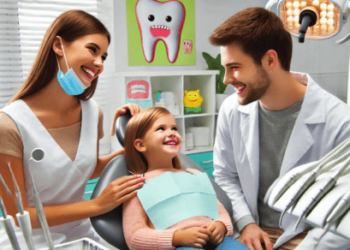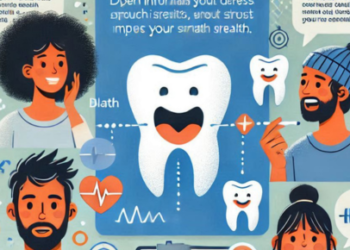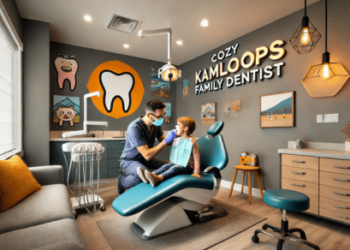Family dentistry is a branch of dentistry that provides comprehensive oral healthcare services to individuals of all ages, from children to adults, within a family unit. It focuses on preventing, diagnosing, and treating various dental conditions, such as tooth decay, gum disease, and tooth loss, to maintain optimal oral health and overall well-being.
The family dentist in Northwest Albuquerque, NM offers a wide range of dental and also educates patients on proper oral hygiene techniques, diet, and lifestyle habits to promote healthy smiles and prevent dental problems. By providing personalized care and attention to each family member’s unique needs, family dentists build long-term relationships and help families achieve a lifetime of healthy, beautiful smiles.
A comprehensive guide to oral hygiene education
Oral hygiene education is an essential service provided by family dentists to help patients maintain good oral health. This education includes:
- Proper brushing techniques: Demonstrating how to brush teeth correctly, including duration, frequency, and areas to focus on.
- Flossing instructions: Teach patients how to floss effectively to remove plaque and food particles.
- Tongue scraping: Educating patients on the importance of tongue scraping to remove bacteria and freshen breath.
- Mouthwash use: Advising on the use of mouthwash to kill bacteria and strengthen teeth.
- Diet counseling: Guiding patients on a healthy diet, limiting sugary and acidic foods, and promoting crunchy fruits and vegetables.
- Oral hygiene products: Recommending suitable toothbrushes, toothpaste, and other oral care products.
- Regular check-ups: Scheduling regular dental check-ups to monitor oral health and provide personalized feedback.
- Demonstration and hands-on training: Providing hands-on training and demonstrations to ensure patients understand proper oral hygiene techniques.
- Patient-specific guidance: Offering personalized oral hygiene advice based on individual needs and health conditions.
- Children’s oral hygiene education: Teaching children proper oral hygiene habits, making it fun and engaging.
By providing oral hygiene education, family dentists empower patients to take control of their oral health, preventing issues and ensuring a healthy, happy smile.
The importance of good oral health
Oral health is crucial for several reasons:
- Overall health: Oral health is linked to overall health, with research showing connections to heart disease, diabetes, and other systemic conditions.
- Quality of life: Good oral health enables eating, speaking, and socializing without discomfort or embarrassment.
- Self-Esteem: A healthy smile boosts confidence and self-esteem.
- Prevents pain: Regular oral care prevents toothaches and other painful conditions.
- Financial savings: Preventive care avoids costly treatments and procedures.
- Systemic disease prevention: Good oral health may reduce the risk of systemic diseases like heart disease, stroke, and diabetes.
- Early detection: Regular dental check-ups can detect oral cancer and other health issues early.
- Boosts immune system: A healthy mouth helps the immune system fight off infections.
- Fresh breath: Good oral hygiene ensures fresh breath and a pleasant taste.
- Enhances appearance: A healthy smile enhances facial appearance and overall attractiveness.
- Supports overall wellness: Oral health is integral to overall wellness, influencing mental and physical health.
- Reduces risk of premature birth: Good oral health in pregnant women reduces the risk of premature birth.
- Improves cognitive function: Research suggests a link between good oral health and improved cognitive function.
- Enhances nutritional health: A healthy mouth enables proper nutrition and digestion.
- Supports healthy aging: Good oral health is essential for healthy aging and maintaining quality of life.
In conclusion, oral health is a vital aspect of overall health and well-being, and education plays a crucial role in maintaining good oral hygiene habits. By understanding the importance of oral health and practicing proper oral hygiene techniques, you can prevent a range of dental problems, from tooth decay and gum disease to oral cancer. Furthermore, oral health education empowers you to take control of your oral health, make informed decisions, and develop healthy habits that last a lifetime. Individuals, families, and communities need to prioritize oral health education and make it accessible to all, particularly vulnerable populations.




